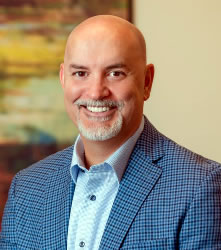Defining The Term
When selecting a financial advisor, people are often confronted with a seemingly simple yet undeniably important question: What is a fiduciary and why does it matter? Unfortunately, many clients are unaware that most advisors are NOT actually fiduciaries. First and foremost, a fiduciary is a “person or organization that acts on behalf of another person or persons to manage assets,” and does so in the best interests of the client, according to the definition of the term on Investopedia. This often includes money managers, financial advisors, bankers, accountants, executors, board members of companies, and corporate officers. Such a party is legally responsible and ethically bound to act in the best interests of the client or corporation and put such considerations first. This has profound implications for these advisory relationships and serves as a key distinction between fiduciaries and non-fiduciaries.
Fiduciary vs. Non-fiduciary
Registered investment advisers (RIAs) operate as fiduciaries, and therefore must adhere to an age-old principle known as "prudent person standard of care." Essentially, the standard ensures that any potential conflicts of interest are avoided or disclosed. In stark contrast to RIAs, brokers and non-fiduciary advisors only have to meet the less-stringent suitability standard. This relationship framework, while less rigid, allows the advisor or broker to select investments that may be more costly when cheaper alternatives may be available, all else being equal. In fact, the way such agents are often paid (i.e., by commission) financially incentivizes them to do just that. Fiduciaries must act in the clients’ best interests at all times, even at the expense of their own compensation. Additionally, the suitability standard merely applies to the purchase of securities, and is therefore a purely transactional mandate.
Fee Structure
As previously mentioned, fiduciary advisors are generally paid differently than non-fiduciaries. In answering the question, ”What is a fiduciary, and why does it matter?”—another central point center on compensation. Typically, fiduciary investment advisors operate under a fee-only or fee-based compensation structure, either as a flat fee, hourly fee, or certain percentage of assets under management (AUM) fees, which are often 1% or less today. This form of compensation minimizes conflicts of interest, as it removes the financial incentives of specific investments or transactions. Under an AUM model, conflicts are not only avoided, but the advisor’s interests are actually aligned to that of their clients, as the more the client portfolio grows, the more money the advisor makes. Thanks to the strict parameters of the fiduciary relationship, excessive risk-taking to enhance returns is also forbidden. Brokers, meanwhile, earn commissions from buying and selling securities, incentivizing frequent transactional activity (known as “churning”). Similarly, non-fiduciary advisors may maximize advisory income by selecting investments that have higher fees, provided that the investment is deemed ”suitable” to the specific needs of the client.
Duty of Loyalty and Care
As outlined in the Investment Advisers Act of 1940, fee-only and fee-based advisors must adhere to a rigid “duty of loyalty and care” (Investopedia). This is where portfolio management and account monitoring become paramount, and show the enduring distinction between fiduciary and non-fiduciary relationships. Most fiduciary advisors employ modern portfolio theory to create portfolios with targeted risk and return profiles and highly specific investment parameters, and generally have discretionary authority over assets, which necessarily mandates a higher standard and duty of care.
A Short-Lived Mandate
In April 2016, the U.S. Department of Labor unveiled its proposed fiduciary rule, stipulating a sweeping standard for advisory relationships of retirement accounts, which again posed the pressing question: ”What is a fiduciary, and why does it matter?” While the rule was effectively quashed in 2018, thanks to a decision from the Fifth Circuit Court, the effects are still being felt in the industry as customer awareness of the issue was greatly enhanced, and the lines separating fiduciaries and non-fiduciaries became much more clearly defined in the process. Even so, research conducted by Personal Capital alarmingly found that “nearly half of Americans falsely believe all advisors are legally required to always act in their clients’ best interests” (US News). It is essential that advisors educate clients and prospects about the distinctions between the two.
What to Conclude
Compensation structure, full disclosure, alignment of interests, and enduring duty of care all dictate that fiduciaries truly act in the best interest of clients. While it’s important to note that non-fiduciary advisors are still held to suitability standards, the advantages of a fiduciary relationship to clients are manifold, including generally higher competency and ethical standards. When seeking an advisor, it is important that people ask advisors a few key questions: How are you paid? Are you a fiduciary? What are your qualifications or professional designations? Visiting the CFP Board website is a great place to find advisors that meet these standards.
Marguerita M. Cheng, CFP®, CRPC®, RICP®, Chief Executive Officer at Blue Ocean Global Wealth, is a Certified Financial Planning Expert with 18 years of experience. Prior to co-founding Blue Ocean Global Wealth, she was a Financial Advisor at Ameriprise Financial and an Analyst and Editor at Towa Securities in Tokyo, Japan. Ms. Cheng serves as a Women's Initiative (WIN) Advocate and subject matter expert for CFP Board, contributing to the development of examination questions for the CFP® Certification Examination. In 2017, she was named the #3 Most Influential Financial Advisor in the Investopedia Top 100, a Woman to Watch by InvestmentNews, and a Top 100 Minority Business Enterprise (MBE®) by the Capital Region Minority Supplier Development Council (CRMSDC).
©Copyright - All Rights Reserved
DO NOT REPRODUCE WITHOUT WRITTEN PERMISSION BY AUTHOR.









